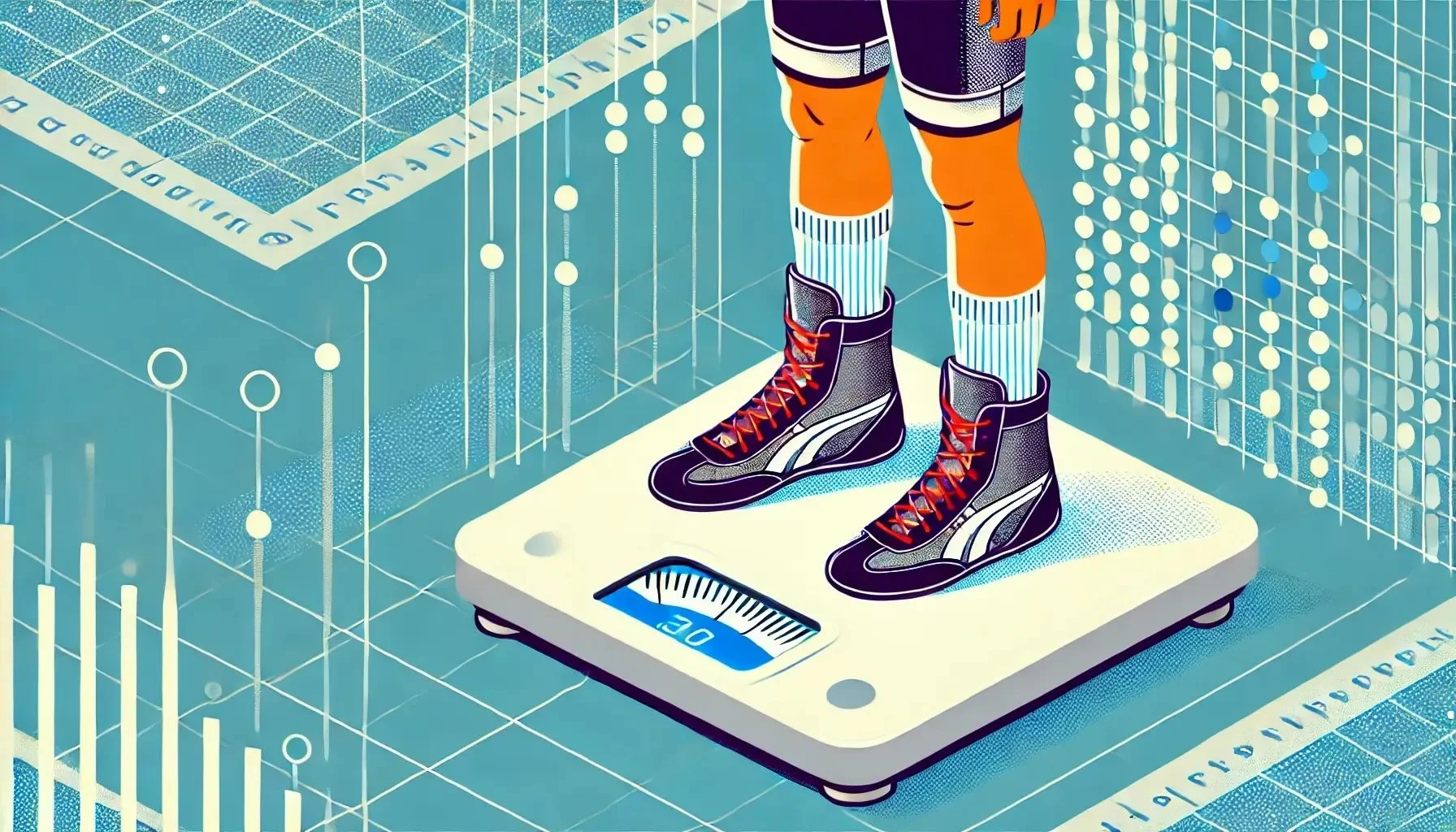She Made Weight, But at What Cost?
What Parents Should Know About the Emotional Toll of Weight Cutting
You hug her after weigh-ins. She made it. She’s relieved—you’re relieved. But deep down, something feels off. Her eyes look tired. She barely spoke this morning. And you're not sure if you're more proud… or worried.
In wrestling, success is often measured in ounces. That number on the scale can determine everything: a starting spot, a shot at state, a future in the sport. For parents, it’s hard not to get caught up in it. We all want the best for our kids—to see them thrive, compete, win. But sometimes, the cost of “making weight” is invisible until it becomes too heavy to carry.
The Emotional Toll on Your Athlete
Weight cutting isn't just a physical process—it's emotional, mental, and for many young girls, deeply personal. From early ages, female wrestlers are taught to manipulate their bodies to fit a number, often before they've even learned how to compete with confidence at their natural weight.
They carry the pressure of expectations:
From their coaches, to be disciplined and tough.
From themselves, to not let anyone down.
From their parents, even unintentionally, to justify the time, money, and hope poured into their journey.
And that pressure builds quietly:
The meal skipped because practice went poorly.
The water bottle untouched because the weigh-in is tomorrow.
The fear of going up a weight class and being told, “You’re too small to wrestle there.”
Behind every made weight is often a girl asking herself if she’s enough.
The Emotional Toll on You
As a parent, it’s heartbreaking to watch. Maybe you feel torn. You see her push through hard practices, get leaner, stay focused—and you’re proud. But you also see the mood swings, the tears after dinner, the anxiety before tournaments. You don’t know if you should step in or let her find her edge.
There’s pressure on you too:
To support her goals.
To keep her safe.
To make the “right” call about weight classes, timing, and nutrition—often with little guidance.
It’s a lot. And you’re not alone.
When Weight Cutting Starts Too Young
Many girls begin cutting before they’ve even had time to grow into their bodies or develop real mat awareness. Instead of learning how to wrestle the weight they are, they learn how to shrink to fit in. This creates a damaging cycle where performance gets tied to a weight class, not skill.
The fear of going up in weight becomes so strong that athletes (and parents) start thinking cutting is the only option. But at what point does the weight become heavier than the win?
The Female Athlete Triad: The 3 Red Flags Parents Can’t Ignore
When weight cutting becomes too extreme or starts too young, the emotional and physical consequences are often overlooked—until they show up in ways we can’t ignore. The Female Athlete Triad is a medical condition that affects many female athletes, often silently. It involves three interconnected warning signs:
🚩 1. Low Energy Availability (Even If She’s Eating)
Your daughter may be training hard, eating “clean,” and still not getting enough fuel. If she’s constantly tired, struggling to recover, or seems irritable and mentally drained, she may be under-fueled—even if her meals seem healthy on the surface.
🚩 2. Irregular or Missing Periods
This is one of the clearest signs her body is under too much stress. When periods become irregular—or stop altogether—it’s often a red flag that hormone levels are out of balance due to low energy intake. This isn’t a “normal” side effect of hard training. It’s your daughter’s body waving a red flag.
🚩 3. Decreased Bone Density
This one is harder to see until it’s too late. Repeated injuries like stress fractures, persistent joint pain, or a noticeable drop in performance may signal that her bones are weakening from long-term under-fueling. These effects can be long-lasting—well beyond her wrestling years.
What You Can Do as a Parent
💬 Ask bigger questions. “Are you feeling strong?” “How’s your energy after practice?” “Have your periods been regular?”
💡 Track patterns, not just performance. Sudden mood changes, lack of recovery, or changes in appetite can signal something’s off.
🍽️ Reinforce that food is fuel. Praise fueling habits—not just discipline or weight loss.
🧠 Focus on the full picture. Making weight shouldn’t come at the cost of her mental health, physical development, or long-term strength. Choose a weight class she can maintain all season, and remember—she’s still growing and should move up as she gains strength and muscle.
There’s a Better Way
As a wrestler, I lived the weight cuts, the pressure, the quiet doubts. As a coach, I’ve seen young athletes push themselves too far, too fast—believing that’s what it takes to succeed. That’s why I poured my years of experience into a new product: The Female Wrestler’s Guide to Weight Management.
This guide is more than science and strategies—it’s my hope for a new culture. One where girls are taught to respect their bodies, not fight against them. Where they grow strong in every sense of the word.
Because our daughters should feel powerful, not panicked, when they step on the scale. They should know that their worth isn’t measured in pounds lost, but in how they wrestle, how they show up, and how they feel in their own skin.
We can do better. And it starts with learning how.




